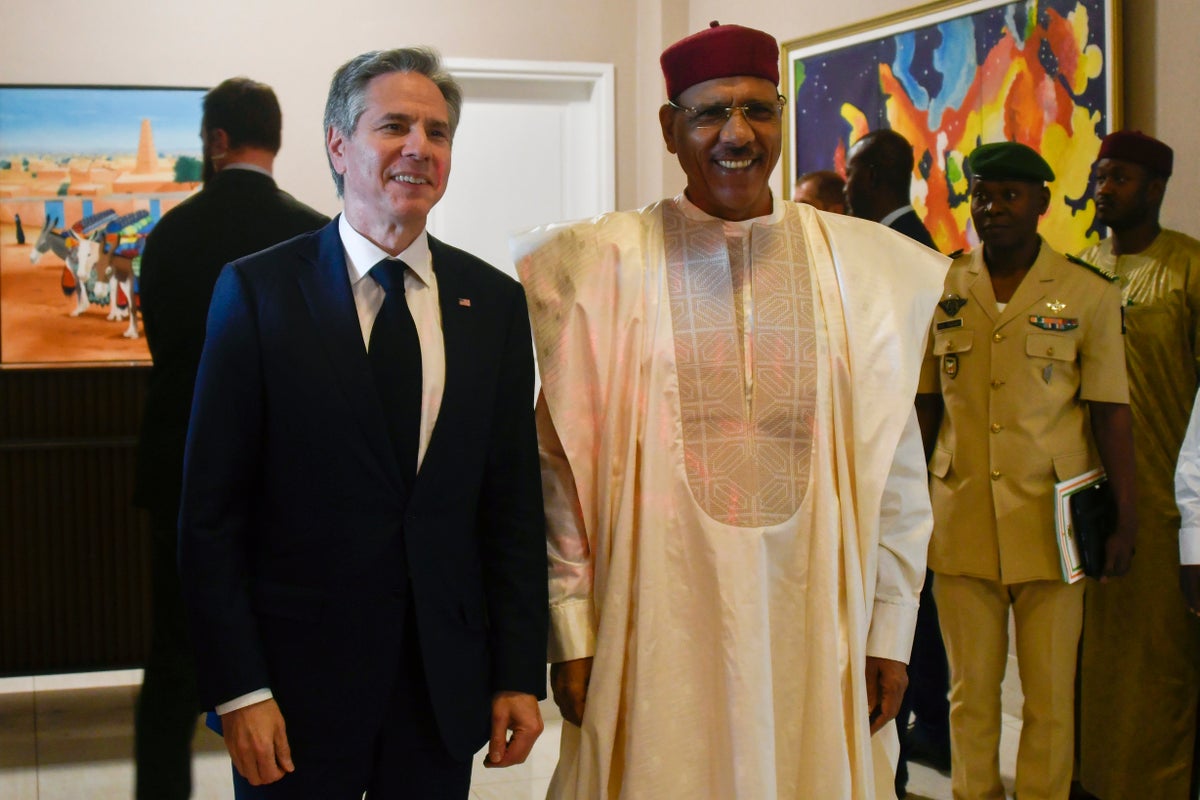
Governing bodies in Africa condemned what they characterized as a coup attempt Wednesday against Niger's president, whose official Twitter account reported that elements of the presidential guard engaged in an “anti-Republican demonstration” and tried to obtain the support of other security forces.
The tweet from the administration of President Mohamed Bazoum did not refer to a coup, and the part of that referred to the demonstration later was deleted. But it said the president and his family were doing well, and Niger's army and national guard “are ready to attack” if those involved in the protest did not back down.
However, the commissions of the African Union and the Economic Community of West African States called the actions of the presidential guardsman an effort to unseat Bazoum, who was elected president two years ago in Niger’s first peaceful, democratic transfer of power since its independence from France in 1960.
The ECOWAS Commission, which manages the programs of the 15-nation regional power bloc, said it “condemns in the strongest terms the attempt to seize power by force and calls on the coup plotters to free the democratically elected president of the republic immediately and without any condition.”
Bazoum's administration has made Niger a key Western partner in the fight against Islamist extremism, which has wracked western Niger. In the decades before his election, Niger had multiple coups, and the president thwarted an attempted coup days before he was sworn into office.
It's unclear what ignited the tensions, or whether the presidential guard members had restricted Bazoum's movements. Streets surrounding the presidential palace in the capital, Niamey, were blocked off Wednesday, as were some government ministries, but the city was calm.
By late afternoon, there was a military buildup outside the headquarters of the state radio and television networks. Pickup trucks mounted with machine guns lined the roads to both buildings, with members of the army and national guard waving cars through.
The Associated Press saw around a dozen reinforcements from the national guard protecting the radio network. Some international security forces operating in the country were ordered put on lockdown.
Someone close to the president who wasn't authorized to speak to the media told The Associated Press that on Wednesday morning, the presidential guard surrounded Bazoum’s house when he and his wife were inside and that negotiations were underway between the parties.
Threats to Bazoum's leadership would undermine the West's efforts to stabilize Africa's Sahel region. U.S. Secretary of State Antony Blinken visited Niger in March, seeking to strengthen ties with a country where the security situation was not as dire as in neighboring nations.
Mali and Burkina Faso have had four coups since 2020, and both are being overrun by extremists linked to al-Qaida and the Islamic State group. Mercenaries from the Russian military company also have deployed in those countries.
“Niger and President Bazoum has been the West’s only hope on the Sahel region to contain jihadists and Russia’s rising influence," said Ulf Laessing, head of the Sahel program at the Konrad Adenauer Foundation. “Western countries have been showering Niger with aid programs, from military to development cooperation. Even if Bazoum survives this, the reputation of Niger among Western policymakers as a stability anchor for the Sahel is damaged.”
Nigerian President Bola Tinubu, who was selected this month as the ECOWAS Commission's chairman, said the regional bloc’s leadership would resist any attempt to unseat Niger's government.
“It should be quite clear to all players in the Republic of Niger that the leadership of the ECOWAS region and all lovers of democracy around the world will not tolerate any situation that incapacitates the democratically elected government of the country,” Tinubu said in a statement he issued in Abuja. “We will do everything within our powers to ensure democracy is firmly planted, nurtured, well rooted and thrives in our region.”
The African Union also called on Nigeriens and Africans to “join their voices in unanimous condemnation of this coup attempt, and for the immediate and unconditional return of the felon soldiers to their barracks.”
The streets on Niamey on Wednesday were bustling like usual, with many residents refusing to discuss the situation until there was more clarity.
Security analysts said another coup attempt would worsen regional instability.
“The repeated coups in the Sahel signaled the beginning of a new era: an era of militaries being in control, and the end of what it was a hopeful democracy," said Rida Lyammouri, senior fellow at the Policy Center for the New South, a Morocco-based think tank. "As we are seeing in Burkina Faso and Mali, coups did not really address security issues, which was the justification of these coups."
“Military coups are simply bad and send countries concerned backward rather than forward toward stability and (a) prosperous future,” Lyammouri said.—-
Chinedu Asadu in Abuja, Nigeria, contributed to this report.







